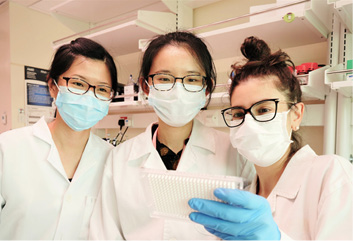A joint study by the Singapore General Hospital (SGH) and Singapore-MIT Alliance for Research and Technology (SMART), MIT’s research enterprise in Singapore, may have found why some patients experience diarrhea after taking the antibiotic amoxicillin-clavulanate, commonly known as Augmentin.
It is a widely prescribed antibiotic used to treat many infections, including pneumonia and urinary tract infections.
The team of researchers found that the level of gut Ruminococcaceae, a family of bacteria that plays an important role in maintaining an individual’s gut health, strongly impacts diarrheal outcomes following antibiotic treatment.
Dr Shirin Kalimuddin, Consultant, Department of Infectious Diseases, SGH, and Principal Investigator of the study, said: “The problem is very real for patients who cannot take amoxicillin-clavulanate because it gives them diarrhea, even though it is an effective and affordable antibiotic for their infection.
“Knowing why may help us identify those at risk of antibiotic-associated diarrhea, and devise treatment strategies in the future to minimise or avoid such adverse effects.”
A total of 30 healthy volunteers were recruited for the study. They each received a three-day oral course of amoxicillin-clavulanate.
Results showed that Ruminococcaceae levels in the stools of study volunteers who developed diarrhea were significantly lower when compared to those who did not, both before and during treatment with amoxicillin-clavulanate.
The team further devised a simple polymerase chain reaction (PCR) test based on levels of Faecalibacterium prausnitzii, a species within the Ruminococcaceae family, that could potentially be used in clinical settings to quickly determine an individual’s risk of developing diarrhea with amoxicillin-clavulanate treatment.
“People respond differently to medication. Understanding this response and the ability to predict those at risk will help guide the development of point-of-care diagnostics,” said Professor Eric J. Alm, Professor of Biological Engineering at MIT, Principal Investigator at SMART Antimicrobial Resistance (AMR) interdisciplinary research group, and co-corresponding author of the study.
“While a lot of attention has been paid to how DNA influences a person’s response to medication, the impact of the gut microbiome on the human drug response has not been widely researched,” said Professor Alm.








